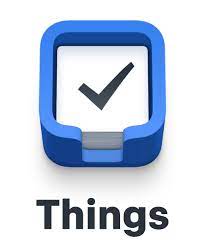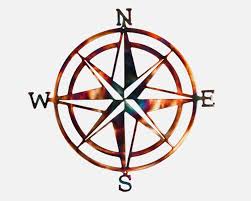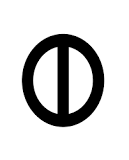|
Any moment in time offers One the gift to experience an emotion; thus the opportunity to develop wisdom and compassion.
Take the emotions of frustration and anger as examples. Beneath the waves of these emotions lies an ocean of grief; and all too often we take action from a place of frustration and anger, using them as weapons to fight against the frustration and anger we feel. There-in lies the cause of the problem. We fight fire-with-fire; we exacerbate the anger and frustration by viewing ourselves as 'separate' from all. THE ACTION OF 'OTHERING'. The fires of separateness can be fueled unintentionally, when we fall into the trap of 'othering'. The terms 'they' as opposed to 'we', 'them' as opposed to 'us', 'you' as opposed to 'me'.....the list of nouns is vast and varied. However, when we practice to draw upon compassion during moments of discomfort (such as anger or frustration), we quell the flames of reactivity and indifference. The spell of 'separateness' is broken. The opportunity arises for the development of wisdom, compassion and harmony by merely pausing in any moment, and asking the Self: "where am I 'othering' in my actions, words, or thoughts?
0 Comments
As a child, there came a day when I packed away my toys once-and-for-all.
It was time to cease participating in the illusion of make-believe, and start interacting with the real world around me. Fifty years later I realized that I had merely substituted one world of make-believe for another. All that I had grasped, and was grasping, was the barrier that blocked me from finding what I was truly seeking. In meditation I discovered...'That' which I was looking for, was 'This' which was looking. The self-created obstacles blocking my view of this truth were instantly dissolved. There is no longer a seeker, for there is nothing to be sought. Humans may be compared to a river, which retains an identity, though the drops of water that make it up are different from one moment to the next.
No 'river' exists in and of itself. WHAT DO YOU LOOK FORWARD TO TODAY?
I discovered something interesting this morning. My wife asked me: "What do you look forward to today?" This innocent question ultimately gifted me an experience of growth. I discovered that nowadays this question feels confrontational to me; it is akin to a tornado heading my way. Why? Interestingly, because of, as opposed to in-spite-of, my practices of mindfulness, the question: "What do you look forward to..." holds equal value to its opposite: "What don't you look forward to..." The question now registers as: 'What do I, or don't I, look forward to in a period of time that does not yet exist'. Having vigilantly practiced, and continue to practice, remaining in the present moment, regardless as to whether it is comfortable or uncomfortable, my inner-warning system is activated whenever I am being invited to step outside that realm. This present moment may be comfortable or uncomfortable, pleasant or unpleasant; either way I am right-here-now. 'Escaping' toward a moment of time in the past or future no longer makes sense to me. I have been practicing to be present (in this moment) to such an extent that when I am invited to step out of it, a part of me hits the warning button. My Higher Self whispers: "Don't go back to the old ways of 'being' in the present with a mind that is 'living' in the future or past". "That old habitual behavior did not serve you". The present is always 'gifting' us; and it will continue to gift us for as long as we remain conscious (awake) of being in it. The experience I was gifted in that present moment (this morning) was the opportunity to see what I do when confronted with discomfort. Perhaps I didn't handle the moment as skillfully as I could have? Perhaps my attempt to explain what I was experiencing fell short? Being mindful (toward others) while practicing to be mindful (within the Self) takes practice. I am still an aspirant of mindfulness (even though I teach it), which constantly offers me opportunities for growth. We do the best we can with the tools we have available at the time. This is why mindfulness is called a 'practice'. We continually rise to the next-best-version of ourselves. To me, the message remains the same: "What do you look forward toward; and what don't you look forward toward, are both equal in value. Both are subject to desire and aversion, which are the creators of suffering. Whereas being fully present (in each moment), regardless of the level of comfort or discomfort, is the pathway to the cessation of suffering. I shall continue to accept the 'isness' of each moment, and be grateful for the 'gifts' of comfort and discomfort that arise within these moments. I am by no means perfect, I am a work in progress; and I am very grateful to be with a partner in life who stands by my side as I practice the practices of mindfulness (she truly loves me for who I am). Fear not the Knot
Attachment to the illusions created by the ego-self manifests our suffering. Knowledge solidifies as we whittle-away each attachment. During prayer, meditation, or contemplation, a power from within highlights this truth. We begin to realize that 'I' hold freedom of choice. 'I' create the moment of experience. When resistance toward the external and internal states of flux is withdrawn, suffering diminishes, and is replaced by a state of calm. Here awareness of all illusion can be seen with clarity. God-realization is born; God the creator, preserver, and destroyer are not separate to 'Self'. 'Self' is not other-than; all is the one. The cycle of this awareness climaxes in death. Ultimately it is death that presents the gift of total non-attachment. The journey of illusion is utterly dispelled; there is no 'other' - no body to confuse the truth. This dropping of the physical body graces awareness upon the soul. The final knot of illusion is released. Fear not the knot, for it is truly an illusion, creating sufferring. ALL THINGS ARE JUST AS THEY ARE
Things don't cause suffering in themselves. Attachment to them is the cause of suffering. Everything is what it is. However, as soon as we have a preference 'it' is changed. The 'thing' can be all-things, nothing, neither all or none, and both all and none - simultaneously. How we perceive 'it' creates the result - our reality of 'it'. Bring this awareness to the forefront; use it wisely, and the illusion of suffering will dissolve. HOW TO SUCCEED ?
Those who follow the path will reach the point of realization; they cannot fail! While those who live a life of folly, blindly chasing that which is already present, shall wander aimlessly until their final day. In order to succeed, one must set their compass and use the map within, then fulfillment shall arise of its own accord. Be prepared to loosen your grip, to surrender and be drawn forth. Embrace this journey of unknown, for herein the answer is to be found. Witness a thought, hold it gently to experience the feeling it creates, then release it. This is how wisdom is developed.
As we practice to quiet the thinking mind we begin to see clearly; we begin to witness the ‘Gestalt’ of it all. * Gestalt: the way a thing has been ‘placed’ or ‘put together’. It is imperative to embrace a deeper level of practice that releases the thought that “I should” take care of everything outside of Self. Listen to what speaks within your own self to witness what current part you play in the Webb of totality. Hold awareness that your job is to be you; to be the piece of the puzzle which is meant to fulfill the segment required to be filled at this period in time. By reaching this higher level of consciousness we clearly see that the Webb is what you are, and at this juncture what you are doing is the obvious thing to do. You are not merely a drop in the ocean, you are the ocean in a drop ! Begin to trust your intuitive decision-making as to what to do, rather than your rational analytic process of what to do. Embrace the wisdom. What is the Goal of life?
We are often mistaken by thinking 'The Goal' of life is to achieve a result. However the sage teachings found in eastern practices proffer that the goal is not to achieve a result; it is to experience the richness found in each moment. The result is already achieved; what you choose to do with it determines your personal outcome. This does not equate to do nothing; it equates to making a concerted effort to not always 'do'. "Happiness' for example is best described by the Greek word eudaemonia:'human flourishing or fulfillment'. In other words, to be 'happy' we need only accept the gift offered in each moment of time - whatever that may represent. And, like any gift, the present moment of time offers us agency to do with it as we wish. It is called the present moment because it is exactly that, 'a present'. Learn the art of wei wu wei When we strive to attain a goal, we often forget the law of antithesis is required for anything to become a reality. Many thousands of years have passed since the simple practices of wei wu wei were shared, and somewhere along the path they were left behind. So if happiness is your GOAL, then practice to cease chasing it. You will be amazed at the realization that you probably already have it, and you didn't even realize. Buddhism, Hinduism, and Taoism are three major philosophical and spiritual traditions that originated in Asia. Although these traditions differ, they also share many similarities in their beliefs and practices. In this blog, I will share some of these similarities.
The concept of karma Karma is a concept that is central to both Hinduism and Buddhism. According to this concept, every action that a person takes has consequences, and these consequences will affect that person's future. In both traditions, the idea is that if a person does good deeds, they will be rewarded in the future, and if they do bad deeds, they will be punished. This 'cause-and-effect' rule of karma shows up in each present moment - the past is affecting the present; it is a reflection of your past actions. Taoism also acknowledges the concept of karma but interprets it differently. Taoism teaches that one should not be attached to the consequences of their actions, but rather focus on living in harmony with the Tao. The Tao, to use.a simple format of explanation, is an alchemic formulae of nature and existence. Along the same lines as gravity existing as a formulae of nature and existence. It is a law or principal. The belief in reincarnation Reincarnation is another concept that is common to all three traditions. All three believe that the soul or spirit of a person does not die when the physical body dies. Instead, it is reborn into a new body. The concept of reincarnation is tied to the idea of karma, as a person's actions in one life will determine their circumstances in the next. The emphasis on meditation Meditation is a practice that is central to all three traditions. Buddhism and Hinduism both emphasize the importance of meditation as a way to achieve enlightenment or liberation from the cycle of reincarnation. Taoism also values meditation, but it is seen more as a way to cultivate inner peace and harmony. The idea of detachment All three traditions emphasize the importance of detachment from material possessions and worldly desires. In Buddhism, this is seen as a way to overcome suffering, while in Hinduism, detachment is necessary for the attainment of moksha, or liberation. In Taoism, detachment is seen as a way to live in harmony with the Tao and to cultivate inner peace. The recognition of the interconnectedness of all things The concept of interconnectedness (or interdependence) is also present in all three traditions. In Hinduism, it is expressed through the idea of Brahman, the ultimate reality that underlies all existence. In Buddhism, it is reflected in the teaching of dependent origination, which states that all things arise in dependence on other things. Taoism also acknowledges the interconnectedness of all things and emphasizes the importance of living in harmony with nature. In conclusion, while there are certainly differences between Buddhism, Hinduism, and Taoism, there are also many similarities. These traditions share a common emphasis on meditation, detachment (non-attachment), karma, reincarnation, and the interconnectedness of all things. We create the results in our life By understanding the similarities of these three philosophical and spiritual traditions, and engaging in practices (tools and techniques) that produce a deeper appreciation for the rich and diverse spiritual traditions of Asia, we discover that we are creating our own suffering in life, and therefore we are in a position to rectify the situation. Do you want to take back control of your life? More information can be found Here |
Archives
June 2024
Categories
|









 RSS Feed
RSS Feed